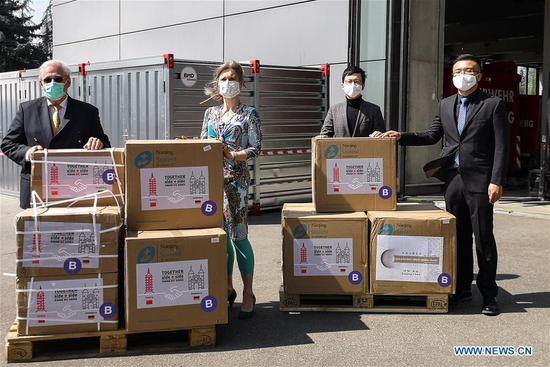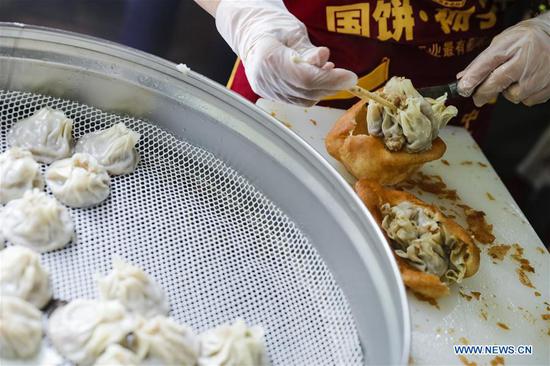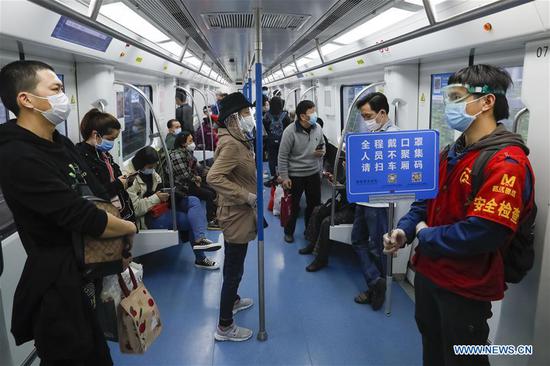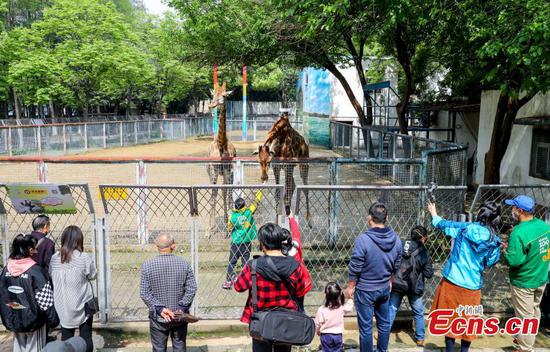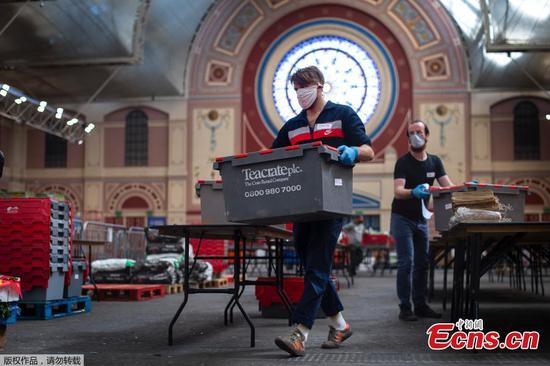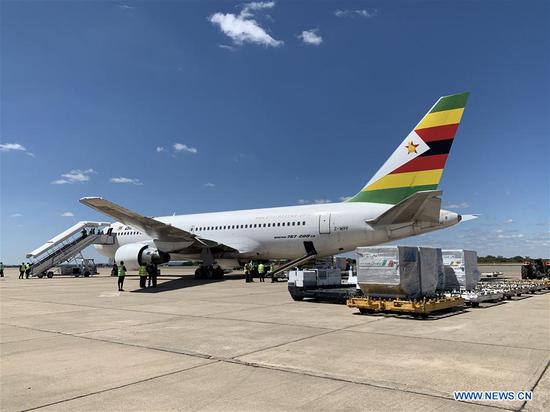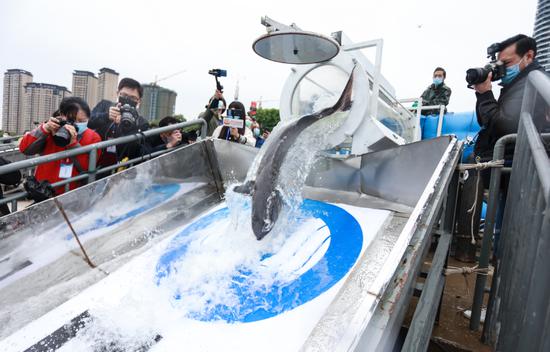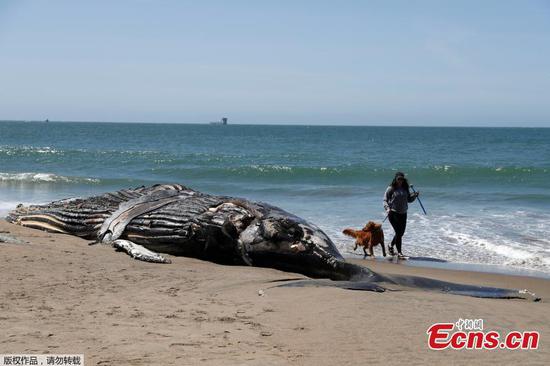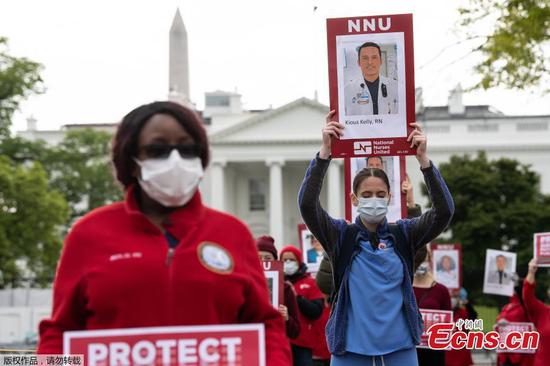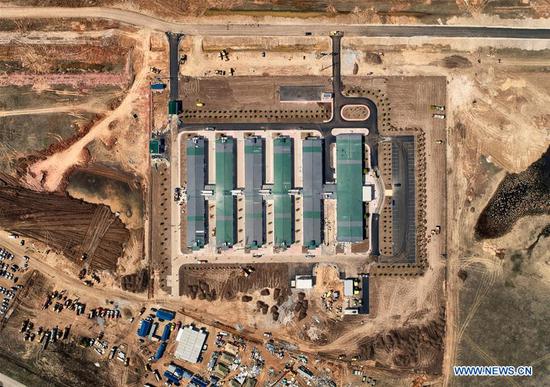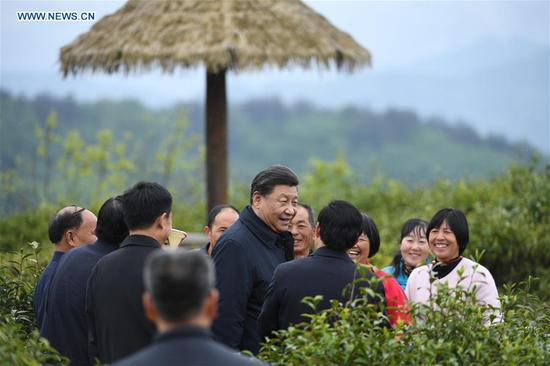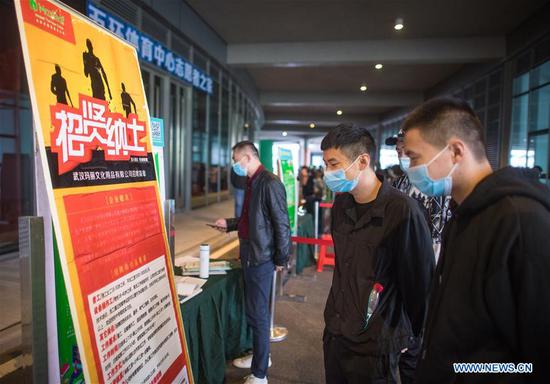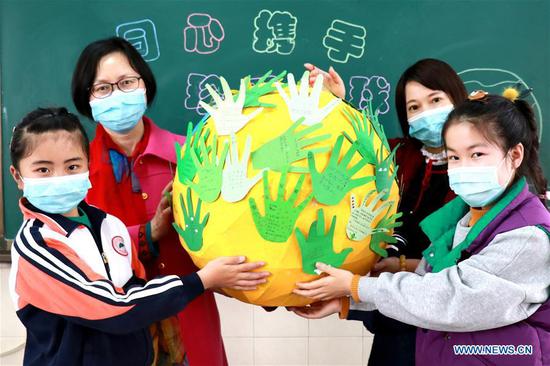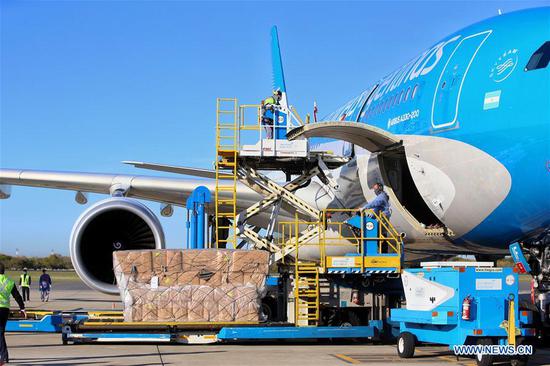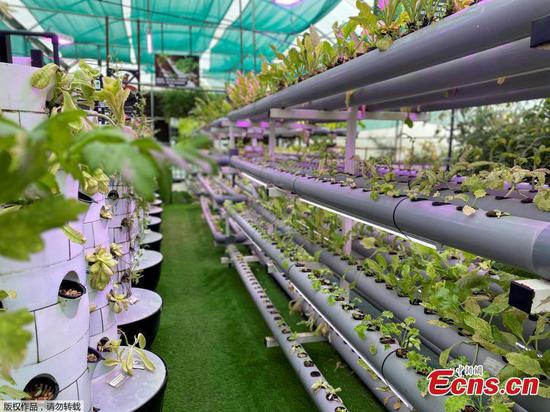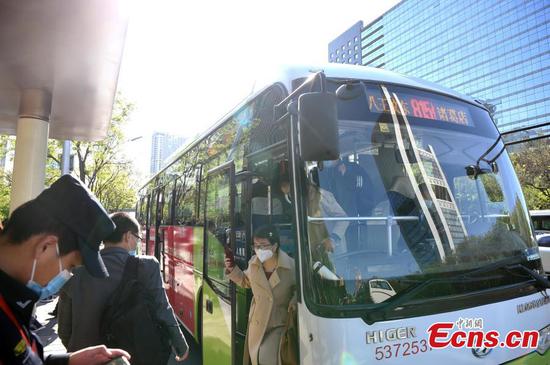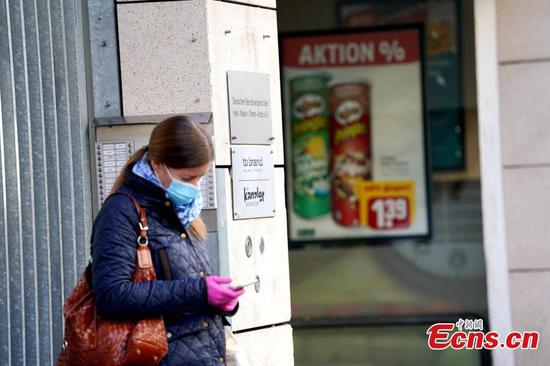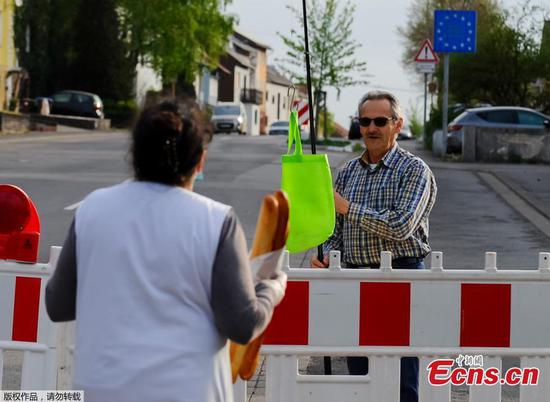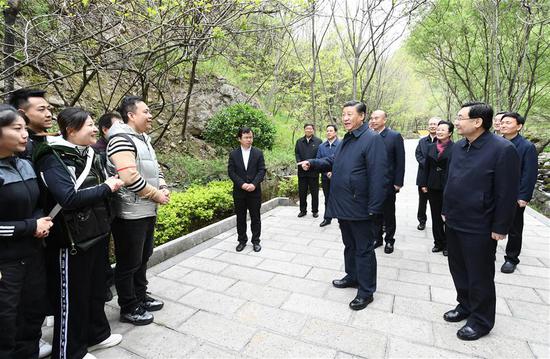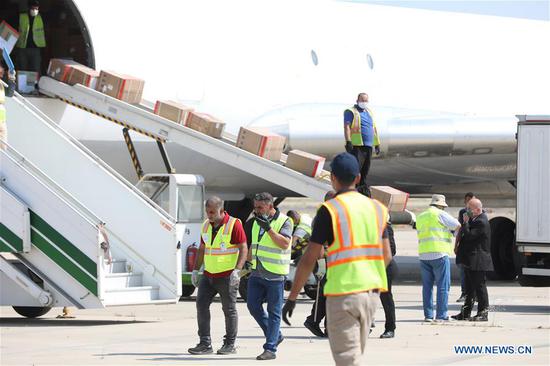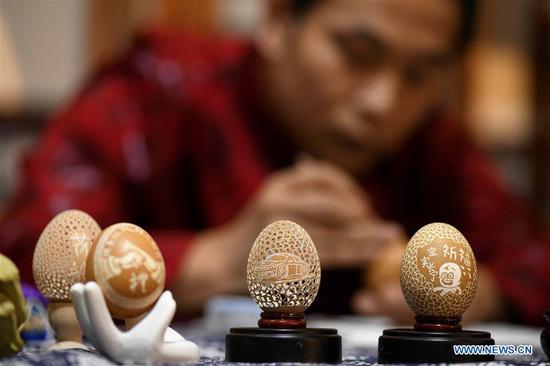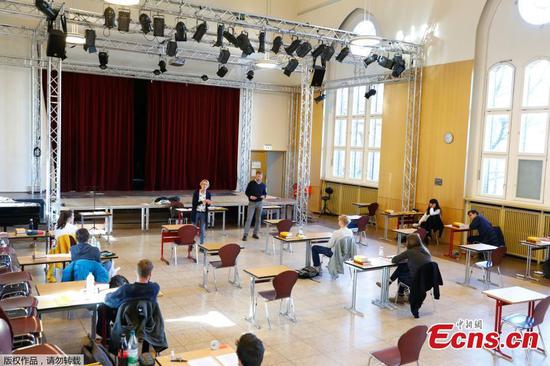
Residents buy food and supplies at a supermarket in Wuhan, Central China's Hubei province, on March 24, 2020. [Photo/Xinhua]
As China is coming out of lockdown ahead of other parts of the world, it will see an economic rebound in the second quarter (Q2), which will buoy markets abroad, said a US economist.
"Output will recover significantly in the second quarter and for the rest of the year," Jeffrey Sachs, a renowned economics professor at Columbia University and a senior United Nations advisor, told Xinhua in a recent written interview.
Amid the COVID-19 impact, China's gross domestic product (GDP) in the first quarter shrank 6.8 percent year-on-year, according to data released last week by China's National Bureau of Statistics.
Noting that the figure is "not surprising," Sachs said China went into lockdown in the first quarter ahead of Europe and the United States, and therefore incurred the downturn first.
"It is coming out of lockdown also ahead of Europe and the US, and will therefore have a partial rebound in Q2 while Europe and the US experience an intensifying decline," he said.
Now production is returning and daily life is moving to a "new normal," though certainly not back to the "old normal," he noted.
Sachs said China's partial rebound will also buoy markets abroad for foodstuffs, commodities and some finished goods as long as supply chains continue to operate properly.
The economist called on China to take actions to help ensure the smooth operation of global supply chains, and "to the extent possible," boost domestic demand through infrastructure investments and thereby also boost demand for goods globally.
"China's economic recovery will ultimately depend on the success of a large part of the world overcoming the epidemic in a cohesive manner," he said.
Sachs suggested China "work very closely with the Asian neighbors" to create a region in which "COVID-19 is strongly under control and trade is resumed."
"This is an important time for ASEAN 3 to operate economically, since all of the countries of ASEAN 3 have a chance to suppress the epidemic and to keep the East Asian economy functioning," Sachs noted. "ASEAN 3" refers to the Association of Southeast Asian Nations, plus China, Japan and South Korea.
"East Asia is the manufacturing center of the world economy, and it can and should be revived first," he said. "That would be a huge boost for the whole world."
Sachs said China should also meet with the European Union (EU) to discuss "macroeconomic and structural cooperation," urging the two sides to cooperate on containing the epidemic, and offering more support for Africa.
Sachs, who serves as director of Center for Sustainable Development at the Columbia University, noted that the two sides should also focus on a partnership of the EU Green Deal and the Belt and Road Initiative. That could be a "framework" for sustainable economic recovery after the pandemic, he added.
In the wake of the US pullout of funding, China should also support the World Health Organization (WHO) "until the US regains its senses" and starts again to fund the WHO, said the US economist.
"China and the US should of course avoid recriminations and aim for cooperation," Sachs said. "This is the only safe and rational way out of the current crisis."









